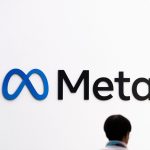Founder of GajiGesa, one of Southeast Asia’s biggest earned wage access companies.
Global events over the past four to five years have called attention to the idea of building a resilient economy. But if economies should have the capacity to absorb stress, recover critical functionality and continue to prosper under altered circumstances, so must its workforce, especially blue-collar workers.
Are We Letting Down The Blue Collars?
Blue-collar workers are often the driving force of an organization, performing vital tasks that keep our factories running and goods moving through supply chains. Often overlooked and unrecognized, they are also the most vulnerable to financial shocks. Low earnings, minimal savings, along with unpredictable expenses frequently lead to cash flow challenges and financial stress. As per a report (Indonesian-language article) by Indef, only 32.7% of Indonesian workers have reserve funds that can last them a week. Further, across the world, 1.4 billion people remain unbanked, which limits their access to formal credit instruments, especially in emerging markets. So, in order to cover their monthly expenses, they often turn to payday loans.
The payday loan market is projected to hit USD 48.68 billion by 2030. It is driven by the fact that loan disbursement is fast, and there are almost no usage restrictions. It has only risen during the COVID-19 pandemic and the financial hardships brought about in its wake. But these loans come at a steep cost—exorbitant rates of interest and high potential for borrowers to fall into a debt trap.
It is clearer than ever that in order to build a resilient workforce, we need to ensure better financial access and inclusion.
Employees’ Perspective on EWA
In recent years, Earned Wage Access (EWA) has emerged as a high-impact means of ensuring a steady cash flow for workers, especially when faced with unforeseen expenses. The system gives employees access to the money that they have already earned before their regular payday. It captures attendance data based on which the amount accrued to a worker is calculated and can be accessed in real time. As founder of an earned wage access company myself, I can say with experience that EWA provides a transparent and safe mechanism that can seamlessly integrate with the traditional payroll system of an enterprise.
According to a survey by PwC, 57% of employees say that finances are the chief cause of stress in their lives, and 49% find it difficult to meet household expenses on time each month. 44% admit that personal finance issues have been a distraction at work, and 73% of financially stressed employees say they would be attracted to another employer that cares more about their financial well-being.
By reducing their dependence on predatory loans and other exploitative financial schemes, EWA can help employees save cash that would otherwise have gone towards interest repayment, late payment fees or other large administrative fees. It gives greater control and flexibility to workers living paycheck to paycheck, and they are able to meet their financial obligations. Reducing financial stress has a positive effect on their mental and physical health.
Employers’ Perspective
There is a strong business case for employers to provide ongoing financial support that goes beyond the cash component. EWA is an innovative and low-cost way in which companies can provide financial support that has a higher impact on addressing employees’ financial resilience than a pay raise or one-off financial support packages.
There is a compelling connection between a financially resilient workforce and an organization’s success. Workers that are not stressed about their financial well-being are more productive at work. A report (download required) by the Mercator Advisory Group states that financial peace of mind creates a better employee experience, and workers stay longer with the company. Such employees have a higher degree of job satisfaction and improved performance.
By providing EWA as a benefit, companies can attract and retain talent and differentiate themselves from competition. Given its merits, it is easy to see why global giants like Walmart and McDonald’s are offering EWA to their employees to better assist the management of personal finance. In the emerging markets, I notice multiple organizations in Nigeria, South Africa, Kenya and Ghana in Africa, and India, Indonesia, Malaysia and Vietnam in Asia are offering EWA to their workers.
Implementing EWA
For an organization looking to implement an EWA program, here are some key points to keep in mind.
• The provider that you choose should be a well-reputed company with a track record for implementing flexible EWA programs that can be on-boarded fast.
• A well-implemented EWA program should be easy to adopt and compatible with the existing system of payroll and customizable for your organization.
• There should be transparency in pricing and no hidden fees, especially for the employees.
• EWA providers offer different processes and products—some may offer only the capital needed, and others may offer a more holistic package with account and budget management and financial education and be embedded with other financial services like phone recharges. Be sure that the kind of program you select aligns with the overall business model of your organization.
Riding Out the Storm
Offering an accessible and fair financial solution like EWA can lead to better financial access and inclusion for blue-collar workers. It can be a simple yet effective tool that not just creates economic security for workers but also generates business benefits. With the predicted recession looming, this is the time for leaders to consider targeted actions that promote financial resilience and well-being so that workers can lead fulfilling lives. And if the goal is to create a financially inclusive world, I believe it is no longer a question of if but when an organization will adopt an EWA solution.
Forbes Business Council is the foremost growth and networking organization for business owners and leaders. Do I qualify?
Read the full article here










